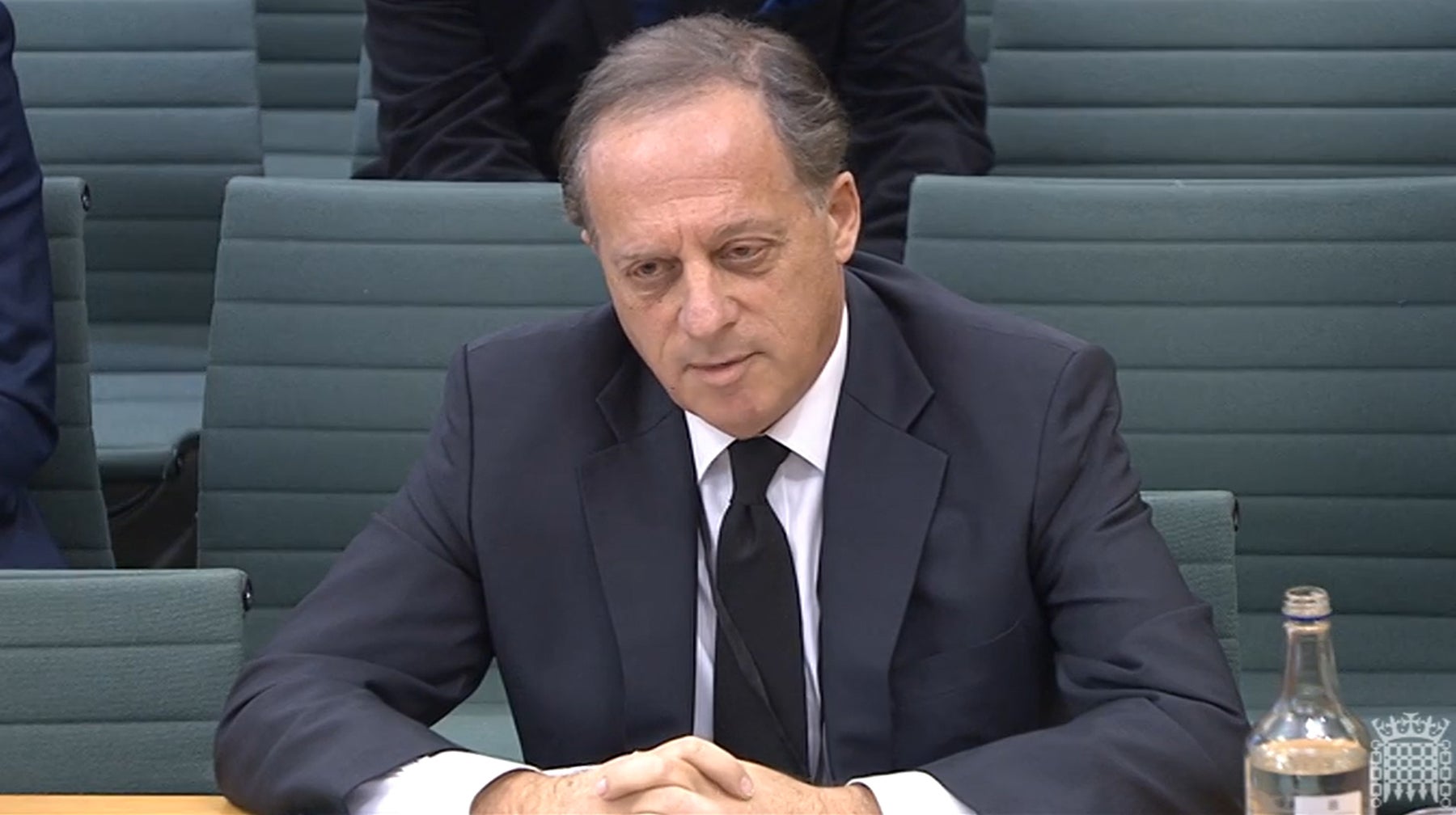How can Richard Sharp go on while this political row rages around him?
He is less important than the organisation he serves, writes the former head of BBC Television News, Roger Mosey


Your support helps us to tell the story
From reproductive rights to climate change to Big Tech, The Independent is on the ground when the story is developing. Whether it's investigating the financials of Elon Musk's pro-Trump PAC or producing our latest documentary, 'The A Word', which shines a light on the American women fighting for reproductive rights, we know how important it is to parse out the facts from the messaging.
At such a critical moment in US history, we need reporters on the ground. Your donation allows us to keep sending journalists to speak to both sides of the story.
The Independent is trusted by Americans across the entire political spectrum. And unlike many other quality news outlets, we choose not to lock Americans out of our reporting and analysis with paywalls. We believe quality journalism should be available to everyone, paid for by those who can afford it.
Your support makes all the difference.Despite the hijacking of the news agenda by a voluntary resignation north of the border, there is a strong sense that the end credits are also about to roll on Richard Sharp’s time as chair of the BBC.
His critics in the media have become more outspoken, but more worrying for him must be the lack of enthusiasm this week at Westminster. The government has declined to whip up enthusiasm for his tenure to continue; the opposition parties have never had time for him anyway; and we are now waiting for an official report to deliver its judgement.
It is easy to see why he feels aggrieved by this. Sharp is a man of ability with a strong track record in business and great political connections. He knows his culture – he is a former chair of the Royal Academy – and the early signals from inside the BBC on his latest job were positive. He “got” the corporation, and he applied himself to safeguarding its long-term future.
It was hardly a secret that he was a political appointee: his donations to the Conservative Party were public, as was his professional relationship with Boris Johnson. There is absolutely nothing new about a government choosing someone of its own political colour to run the BBC, and only the most naive person would think that all stages of the process were conducted by the Archangel Gabriel.
But the problem is that the chair of the BBC is not presiding over any old organisation. Despite its faults, the corporation can still claim to be the greatest public service broadcaster in the world; and its global role is highlighted by the current disgraceful behaviour towards it by the Indian government, which seems to be pursuing a vendetta after criticism of its prime minister.
The BBC, therefore, needs gold-standard leadership. The bar becomes even higher if you set yourself the goal of reform.
In his first interview as chair, Sharp dished it out. Some of the BBC’s journalists needed to “raise their game”; Emily Maitlis had been “wrong” in her introduction to an item on Newsnight about Dominic Cummings; and, yes, the BBC does have a “liberal bias”. So it becomes a crisis if you demand the best from others while failing to do the admin properly while you were applying for the post.
One well-known BBC journalist said, when the Sunday Times revelations about Sharp broke, that they thought his errors merited, to borrow football punishments, a yellow card rather than a straight red. But in the case of a BBC chair, it becomes sticky if you operate as the public’s guardian of independence and impartiality – both of which are precious commodities – when you yourself have transgressed.
A senior broadcaster reports that “the overwhelming view in the newsroom is that his continued presence is damaging”. If Richard Sharp wandered into a programme office to chat about editorial standards, it would be understandable if the journalists told him to take a running jump.
So the real question for Sharp now is not about what happened in the past but whether he can do the job in the future. Take his old boss, Boris Johnson. The former PM will soon be appearing before a Commons committee in an inquiry that will bring Partygate back to the top of the agenda.
If there is a major dispute about the BBC’s coverage – whether it is too favourable or too hostile to Johnson – will Sharp have to recuse himself from any oversight? It is impossible to imagine the chair making the customary appearances before MPs on BBC accountability issues without reviving the political row now raging around him.
Similarly, if there are disputes looming about fair appointments within the BBC, it seems improbable that Sharp would be the man you’d call to sort them out.
This may be tough for Sharp as an individual, but he is less important than the organisation he serves – and above all he is supposed to be the champion of everyone who pays the TV licence. Sharp needs to consider whether, in all honesty, he can continue to claim that role. I really don’t think he can.
Roger Mosey is an author, broadcaster and current Master of Selwyn College, Cambridge
Join our commenting forum
Join thought-provoking conversations, follow other Independent readers and see their replies
Comments